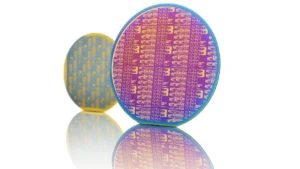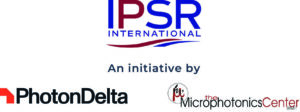Comprehensive roadmap to drive the integrated photonics industry forward unveiled
- PhotonDelta and MIT Microphotonics Center’s roadmap initiative involves contributions from more than 400 organisations including Airbus, Meta, NASA, Dupont Electronics, General Motors, The European Space Agency and VodafoneZiggo
- Integrated Photonics System Roadmap – International (IPSR-I) identifies key technology gaps that, if solved, enable integrated photonics to revolutionise industries including RF photonics (wireless communication), 3D imaging, datacom and sensing
- The IPSR-I is a platform for a unified, global trust-based network of industrial and R&D partners to drive innovation and adoption of photonics.
Eindhoven, the Netherlands; Massachusetts, USA; 25th March 2024: More than 400 technology, academic and industrial organisations from around the world have contributed to a new integrated photonics roadmap led by foundation PhotonDelta and the Microphotonics Center at the Massachusetts Institute of Technology (MIT).

IPSR-I provides a technology roadmap and a clear way forward for building a global, aligned integrated photonics industry with the ability to help solve major societal challenges. This is underpinned by a call to establish and sustain a trust based global network of industrial and R&D partners, who work together to create Photonic Integrated Circuits (PICs) technology and systems requirements. By aligning the entire supply chain from research to end users, the integrated photonics industry will be able to drive volume manufacturing of PICs.
he integration of photonics with electronics is the key enabler for the creation of smaller, faster and more energy-efficient devices. The integration has the potential to expand functionality and create a large number of new applications and is helping to unlock major advancements in many areas including autonomous vehicles, data telecom and healthcare. Integrated photonics is also the technology that generates, processes, and detects light for sensing and communication applications.
IPSR-I describes the consensus from more than 400 experts from over 100 workshops and 13 conferences. It includes a comprehensive overview of major technology gaps for volume manufacturing of PICs and a detailed analysis of the challenges that the integrated photonics industry needs to overcome to achieve its potential.
The second version of the roadmap, which was produced over the past three years, now includes insights into wireless communication and 3D-imaging.
Peter van Arkel, CTO of PhotonDelta, said: “Getting all research and development resources of the integrated photonics industry and academia behind solving the technological gaps identified by the IPSR-I, will contribute to solving the large societal challenges in a spectacular manner. At the heart of the roadmap is a global approach for the integrated photonics industry to rally behind to meet core challenges. Reaching a consensus on these technological gaps has been very challenging with such a diverse group of contributors. Looking at the results, it has definitely been worth it.”
Lionel Kimerling, Thomas Lord Professor of Materials Science and Engineering at MIT, said: “Electronic-photonic integration has the capacity to radically transform a whole host of industries and unlock a range of new technologies that will change our lives. Transitioning this vision to high volume manufacturing requires a well thought out plan built on the knowledge of a huge range of experts across different fields, organisations and nations. This is what IPSR-I has achieved – it outlines a clear way forward and specifies an innovative learning curve for scaling performance and applications for the next 15 years.”
ISPR-I officially launched during the Executive Forum at OFC in San Diego on March 25th 2024. The full roadmap can be downloaded here: www.photondelta.com/ipsri-2024/
